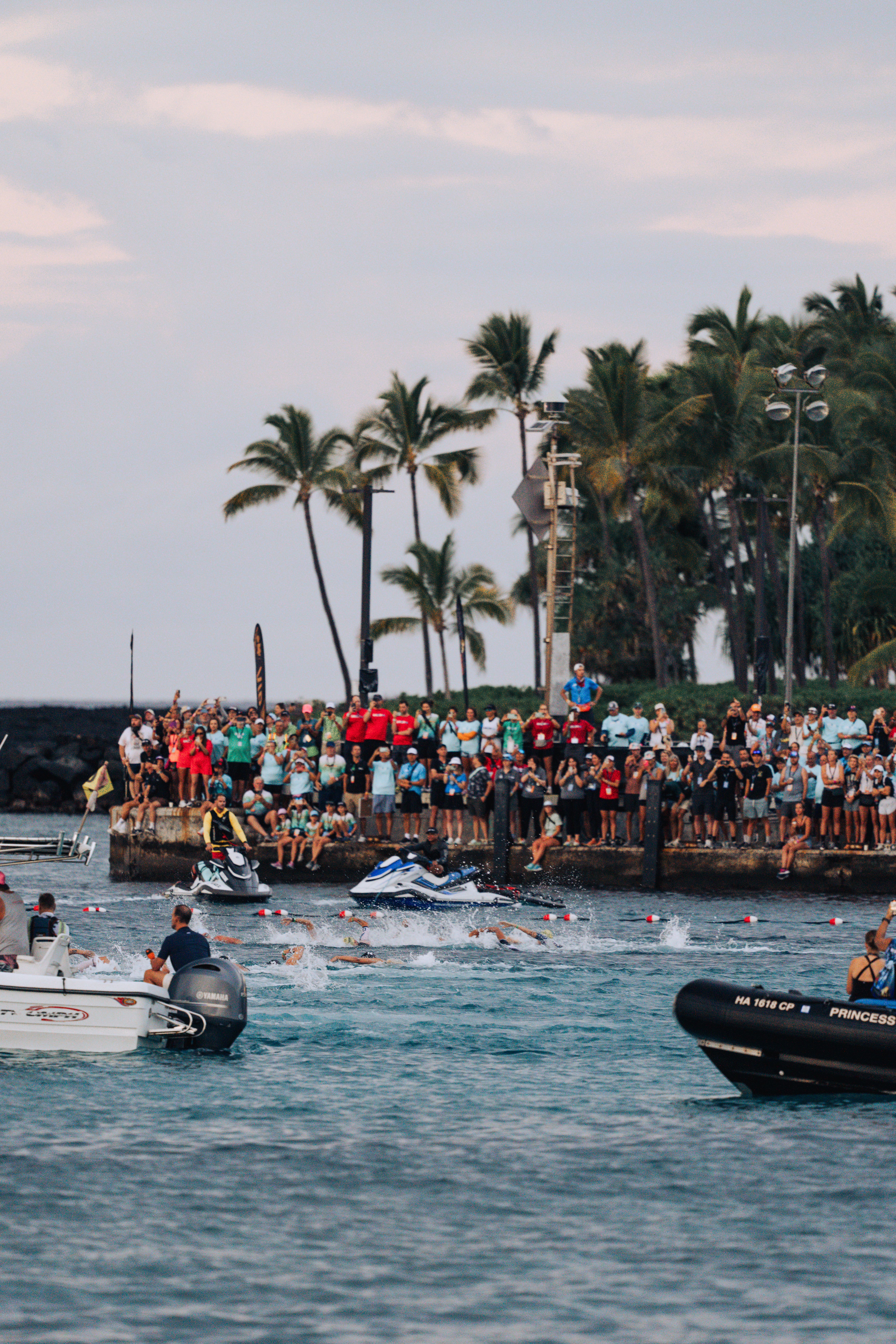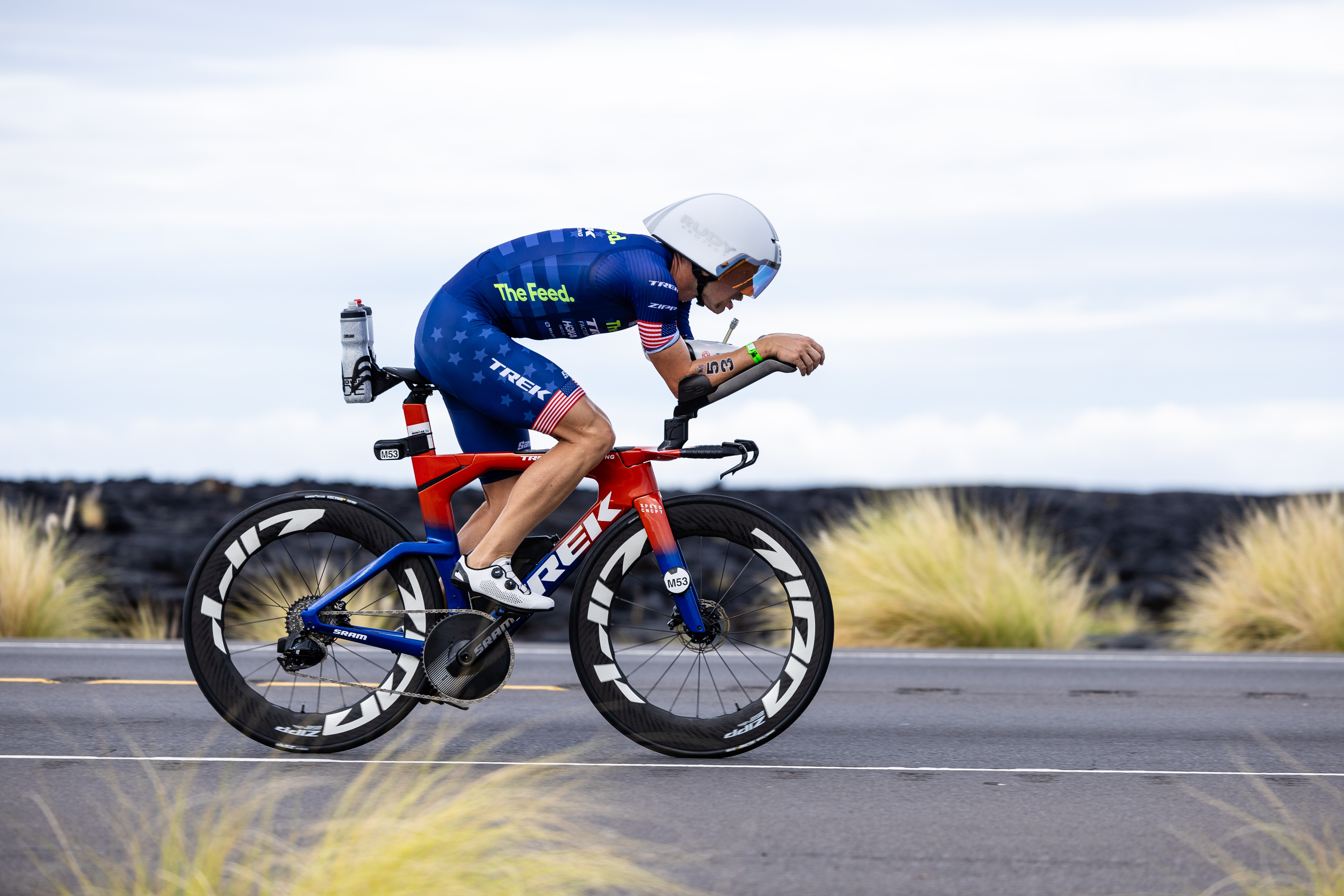Kona: Kanute's Journey
Posted by Ken Ballhause, Joe Laverick on 29th Oct 2024
Ben Kanute: Kona
“It was my best Ironman and worst wrapped into one.”
Ben Kanute is no stranger to the sport of triathlon, the now-32-year-old grew up in a family that was immersed in the sport. As it does for many triathletes, the Big Island has always had an aura around it. Ben’s Dad raced Kona in 2001, Tim DeBoom won the Elite race that year, the last American to take out the World Champs.
Ben’s dad was back on the island in 2024, this time to cheer on his son.
“I grew up watching Kona on TV. My dad was here the last time an American won it, so hopefully we are going to keep that streak alive with another American to win it in 2024.”
Ben’s love for Triathlon started watching his dad race.
“It started as a kid. Seeing the racing and thinking the sport was cool, seeing people going fast on bikes, I loved swimming, biking and running. Watching the Ironman, with guys flying down the Queen K highway, even with those old-school setups, it seemed super-human and I guess I just wanted to be like that.”
You learn pretty quickly that triathlon quickly has a strong sense of community. The shared passion for endurance sport, respect for the amazing environments Ironman events are held in and respect for the fellow competitors.
“I just had a love for the sport. It started being around good people, and that’s what kept me in it. For a while, my parents' whole friend group were doing triathlons, and my whole friend group were doing triathlons too. Doing training camps, travelling all over the country and then all around the world with these different people. I think the triathlon community in general is full of good, wholesome, driven people.”

Kona is an amazing yet formidable place. You have to experience it yourself to truly understand what an athlete is putting themselves through. An Ironman is a challenge in its own right, but to put yourself through those distances in the heat and humidity of Kona, at the modern-day race pace, is as Ben puts it, “super-human”.
“There are a lot of big races in triathlon, but Kona stands out from all of them. It has that extra bit of magic to it. It’s like the Tour de France. There are three Grand Tours, the Tour de France is not any harder than the Vuelta or the Giro, but the Tour is the Tour.. Oh you won Kona? Is like the appeal of oh you won The Tour, it’s a big deal.
It could be all of the history behind it (Kona), all of these stories that add up, on the same road, a very similar course, in give or take the same conditions, so for someone that follows the sport there is that extra layer of history to the event. It’s the World Champs, it’s in a place that is challenging, so the risks people take are big and that either leads to glory or to massive blowups. Kona is dramatic.”
Ben made the transition to 70.3 and Ironman competition after the 2016 Rio Olympics. Progressing through the super sprint (400m swim, 10km bike, 2.5 km run), and to Olympic distance (1500m swim, 40km bike, 10 km run), Ben has an accomplished resume over the shorter distances. A
Ben’s focus has shifted towards the longer events after the Rio Olympics. In 2017 and in 2022, he was second in the 70.3 World Champs. And now, he has Kona in his sights.
“I’ve enjoyed every distance of triathlon that I have done, I love the super sprint distance and I love the Ironman distance. Super sprint is detail-oriented, you can’t make a single mistake. Ironman is the right amount of length that tickles the imagination of just seeming out of reach of what’s possible to do in a day, and as athletes we have just gotten faster and faster at racing it.
A half is done in under four hours, and that's sizable, but that's the equivalent time of an average training day for an endurance athlete. Racing for seven and a half hours, or more, that’s a long day. What you experience in that and what you see in that, people burning their soles, it’s the triumph of the human spirit.”
Ben described his Kona experience as: “my best Ironman and worst wrapped into one.”
You never know what cards Kona will deal. His swim was well executed, and a jellyfish sting towards the end of the leg was a reminder of that. The bike leg was record breaking.
“I took some chances, we were pushing power closer to a 70.3 pace than Ironman pace. It’s a rollercoaster that you ride, and I felt amazing going up the climb. I took a shot at pushing the pace there as it felt like a pivotal moment. Between that, and some butterfingers in the aid station, I started to feel the toll on the bike.
I was dropped and limped into town the last ten-miles, but I still had a best ever Ironman rider. I tried to rehydrate and find a rhythm on the run, but I couldn’t quite find it. It was my worst marathon ever, but I never considered quitting - I’m proud.”
 The question I often want to ask any endurance athlete is what keeps them coming back for more? As an endurance sports enthusiast, I have often asked myself the same question and it genuinely intrigues me.
The question I often want to ask any endurance athlete is what keeps them coming back for more? As an endurance sports enthusiast, I have often asked myself the same question and it genuinely intrigues me.
“It’s like the runners high, that flow state where everything just clicks and I think that is why a lot of us race, it’s almost like a drug. And, you just want to perfect it, if you ever watch the Ford vs Ferrari movie, where the perfect lap exists somewhere out there, if you can just hit it, it’s spectacular.
If you race the perfect race (Ironman), I don’t know you might just retire, you might not ever hit that “perfect lap” again. But it’s like chasing that perfect execution.”
How do you deal with the 7 + hours of racing?
“When you can find the rhythm, the time melts away. Sometimes it’s easier to get into that zone when you get past the four-hour mark and you feel like you break free of everything else. I will say that there is nothing more painful than the last few miles of an Ironman.”

Ben is supported by Trek, a sponsorship he has held for since the start of his pro career. Trek has a legacy in the sport of Triathlon and with making fast TT bikes. It’s fitting that the American brand has an athlete like Ben onboard.
On the position optimisation side of performance, Ben works with Paraic McGlynn of Cyclologic. Paraic has his own history with the Trek brand, and has consulted with the American powerhouse, on all facets of their bike fitting technology and bike fitting processes. Given that the cyclist accounts for upwards of 70% of the total drag force, it is not a surprise that Ben and Pariac have placed so much emphasis on the importance of his position.
“I think I have probably spent more hours in the fit studio than any triathlete ….”
We'll have a second part to the Ben Kanute story coming, looking in greater detail at his equipment.
Ben Kanute finished in 31st place in the Ironman World Championships, in a time of 08:19:08

